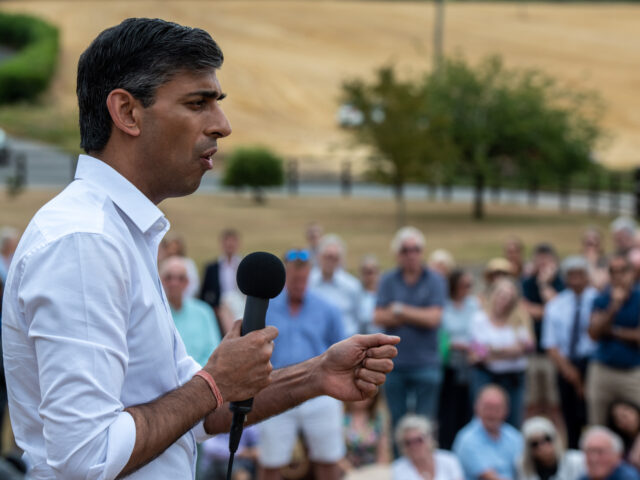Rather than implementing policies to enable families and boost the native population, the government is considering creating a “rural visa” to incentivise more migration to rural areas of the country.
In its annual report, the government’s migration advisory committee (MAC) called for the establishment of a new visa through which foreigners would be encouraged to spend at least five years in economically deprived areas of the country in order to allegedly boost economic production and to counter ageing populations and rural depopulation.
The MAC recommended that the government reduce its already rock-bottom skills requirements for visas and to reduce visa entry fees and the healthcare surcharge for migrants in exchange for them to move to more remote areas of the UK.
“We believe it is in the interest of the UK Government to pilot and evaluate a rural visa targeted at areas facing depopulation and that such a pilot would align with the Government’s commitment to level up all parts of the UK,” the report stated.
“We would caution the Government in becoming too focused on particular net migration numbers, and any change in objective would need to be consistent with the fiscal rules that the Government have in place,” the MAC added.
The recommendations come on the back of a banner year for legal immigration, with net migration hitting a record high during the year to June of 504,000. Despite the public’s desire to see lower levels of immigration, the record waves were driven in part by former Prime Minister Boris Johnson’s post-Brexit points-based immigration, which saw over 1.1 million visas granted to foreigners over the past year.
The migration advisory committee argued that the record numbers of migrants was a result of refugee resettlement programs for Ukrainians and Hong Kongers fleeing their homelands, as well as from student migration, which the committee argued will only be temporary.
Yet, while there was a spike in net migration over the past year, it is a continued trend of mass migration that began with the Labour Party government of Tony Blair in the early 2000s.
At the same time the country has been experiencing mass migration, fertility rates among the native population have continued to fall. The Office for National Statistics (ONS) reported that in 2020, the fertility rate in England and Wales fell to its lowest level in recorded history. For native British women, the fertility rate stood at just 1.5 children per woman — well below the replacement rate of 2.1 children.
During the same year, the foreign-born population saw its fertility rate increase to 1.98, with Pakistanis being the most common country of origin for foreign parents.
The combination of declining birth rates and mass migration has seen the indigenous population plummet, falling from 87.5 per cent in 2001 to less than three-quarters in 2021 (74.4 per cent). It comes as Birmingham, Leicester, and Luton were added to the ranks of major British cities in which the settled native population are now minorities.
While the government continues to look towards immigration to solve the declining demographics of the country, it continues to disincentivise its own citizens from starting their own families, such as continuing the damaging policy of levying taxes on individual earnings on individuals rather than on families, punishing or even making outright impossible traditional single-breadwinner families.
On top of the anti-family taxation system, under the nominally Conservative government only lower-income families are eligible to receive marriage allowances from the government, further contributing to the displacement of adults from the partner-supported family life they may choose for themselves to the workplace.
In contrast to the British government’s hostile attitude towards traditional families, socially conservative countries in Central and Eastern Europe, such as Poland and Hungary have adopted pro-family policies to incentivise their native populations to reproduce.
Poland, for example, has implemented pro-mother policies such as the “maternal pension” to show “gratitude and respect” for women who have raised four or more children. Hungary, meanwhile, has successfully increased both its marriage and birth rates through economic incentives for mothers, like granting lifetime tax-exempt status for women who have four or more children.
Hungarian Prime Minister Viktor Orbán has said that many Western nations are engaging in a form of “suicide” by adopting “Great Replacement” policies. The Great Replacement theory was originally coined by French writer Renaud Camus, who has argued that global leaders who advocate for mass migration view people as essentially interchangeable and not as individual humans.
Orbán has also claimed that the motivation for the agenda is ultimately to form a “new proletariat,” saying: “The West… just does not want to maintain itself. Let’s not beat around the bush: certain civilisations are able to reproduce; the Western civilisation is not able to reproduce — so much so that they are unable to decide whether this is a problem at all.”
“And there are others who sense the problem of declining demographics and they want migration. They believe alien peoples from distant lands should be moved in and that will stop the demographic decline. But mass migration… the millions of people who have been lured here, are basically a global plan of moving in the new proletariat.”
Follow Kurt Zindulka on Twitter here @KurtZindulka

COMMENTS
Please let us know if you're having issues with commenting.